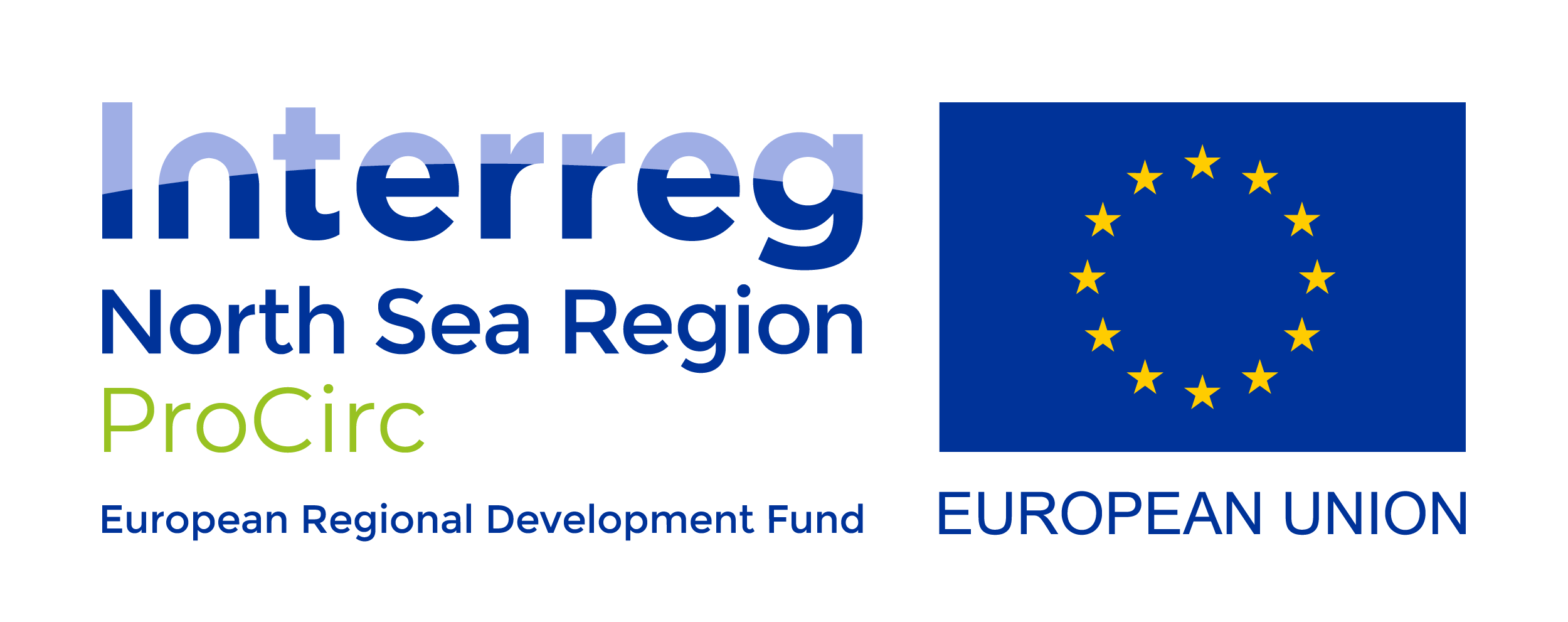News
ProCirc
ProCirc – Circular Procurement: Accelerate circular economy through procurement power, alliance- and capacity building – was a 3.5 year Interreg North Sea Region project that started in 2018, co-funded by the Regional Development Fund of the European Union. It was led by a consortium of 11 partners, including ACR+, representing both public authorities and research institutes.
Project co-funded by the European Regional Development Fund, 2018 - 2022.
Highlights
ProCirc is now over after 4.5 years of activities and accompanying over 30 pilots. The project organised 2 closing events gathering a wide range of stakeholders to discuss and present the project’s conclusions. In June, ProCirc published its final report, the Compendium for Transnational Circular Procurement Scale Up, summarising outputs of the ProCirc project into five stakeholder groups: procurers, managers, policymakers, suppliers, and value chain actors.
{slider THE PROJECT}
ProCirc was a transnational project in the North Sea region that was set up to experiment, implement, and learn how circular economy and procurement could benefit the region. Procuring organisations were able to stimulate circular economy using their demand to change markets. This not only had a direct impact on the business models, innovation, and economic opportunities that suppliers would create, but also on decreasing carbon emissions and the use of resources and closing product and material loops.
{slider ACTIVITIES}
To fully benefit from circular opportunities and to contribute to the international development of the circular economy, ProCirc conducted 30 pilots to demonstrate procurement opportunities. Each pilot aimed to reduce 20-25% raw materials, waste and CO2 emissions. Insights and tools regarding specific sectors like construction, furniture and ICT were disseminated in the North Sea region by creating an active transnational network on the topic.
{slider PARTNERS INVOLVED}
ProCirc’s project coordinator was Rijkswaterstaat* (Ministry of Infrastructure and waterworks, NL) and its project partners were:
- OVAM*, Public Waste Agency of Flanders – Circular Flanders (BE)
- Business in the Community (UK)
- ZWS*, Zero Waste Scotland (UK)
- Netværk for Bæredygtig Erhvervsudvikling NordDanmark (Network for Sustainability Business Development Northern Denmark) (DK)
- Kamp C (BE)
- Direktoratet for forvaltning og ikt (Agency for public management and egovernment) (NO)
- Kolding Municipality (DK)
- ACR+, Association of Cities and Regions for Sustainable Resource Management (BE)
- CLEAN (DK)
- City of Malmo (SV)
* ACR+ member
{/sliders}











